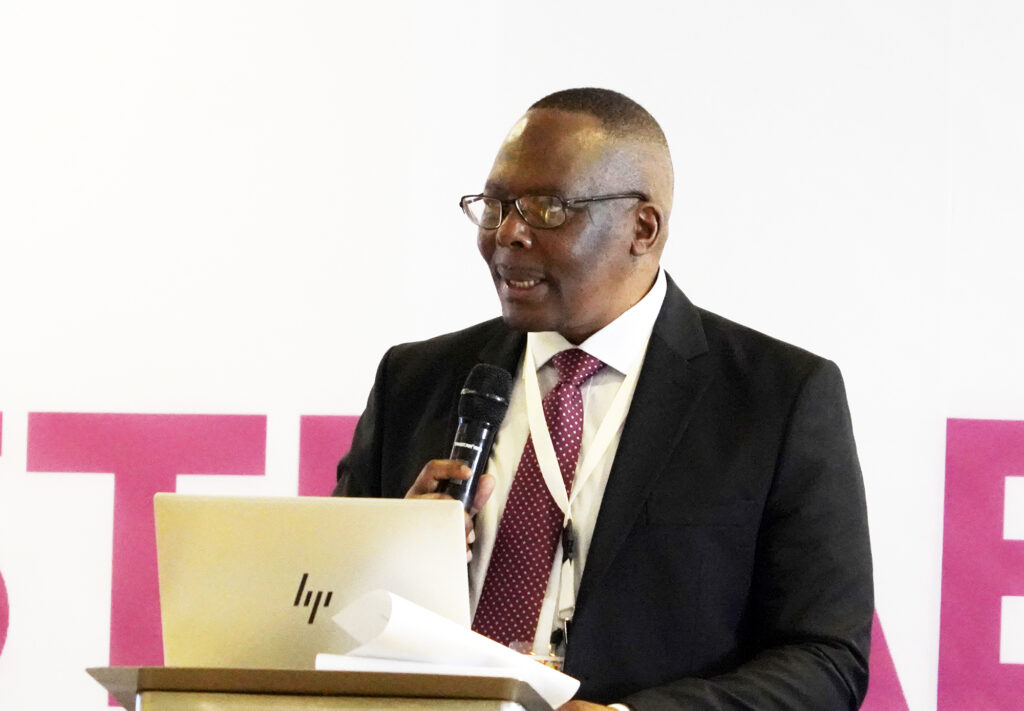As leaders of the evangelical faith converged in Nairobi for the 13th General Assembly of the Association of Evangelicals in Africa (AEA), a powerful call for self-reflection and renewal echoed across the continent.

Bishop Dr. Goodwill Shana, the AEA President, delivered a deeply stirring keynote address that challenged the African Church to shed complacency and reclaim its prophetic mandate in order to shape Africa’s future.
Held from May 21 to 23, the triennial gathering drew evangelical leaders from across Africa to assess the role of the Church amid persistent poverty, governance failures, and moral decay, despite the continent’s swelling Christian population.
Bishop Shana lamented the fact that churches are expanding, congregations are multiplying, and yet the societies surrounding them remain plagued by corruption, injustice, and economic stagnation. “We have growing churches but stagnant societies. We have abundance of resources, yet our people live in poverty. We have the largest Christian demographic in the world, and yet little transformation to show for it,” he said.
Drawing on examples from countries such as Nigeria, Kenya, Zimbabwe, and the Democratic Republic of Congo, Shana lamented that the Church’s numerical dominance had not translated into tangible societal reform. He described this as an “oxymoronic dilemma” confronting African Christianity, calling for deep introspection on the Church’s relevance and witness.
Shana posed a bold question in response to the African Union’s Agenda 2063, which envisions the future of the continent. “What is the Africa God wants?” he asked. The answer, he said, lies in developing the Church that God wants, one not trapped in outdated models of escapism, reactionary benevolence, or uncritical alliance with political power.
He criticized past approaches that saw the Church either retreating from society, stepping in only during crises, or seeking to dominate state structures. These responses, he noted, have failed. “When the Church aligns too closely with power, it becomes as corrupted as those who held it before. The Church loses its saltiness,” Shana warned.
He urged the Church to be one that embodies righteousness, justice, humility, and truth. A true prophetic Church, he said, must not only critique what is wrong but actively present and model what is right. This prophetic role, he explained, has three key expressions. The first is “forthtelling,” which involves declaring God’s truth through solid biblical teaching and moral clarity.
The second is “foretelling,” or the prediction of future events, which he acknowledged has been widely misused in Africa by self-styled celebrity prophets who promise personal breakthroughs but offer no ethical direction.
“These so-called major prophets, Papa this and that, have damaged the Church’s moral authority. They offer entertainment rather than transformation,” Shana said, decrying how many have turned spiritual platforms into spectacles devoid of gospel truth.
The third and most vital expression of the prophetic voice, he asserted, is the Church’s collective stand for justice, equity, and societal healing. “It is not enough to speak against. We must also speak for. We must propose alternative models and solutions that bring life and healing,” he emphasized.
For this vision to be realized, Shana called on African evangelicals to recommit to three foundational principles: vision, virtue, and values. The Church must reimagine itself not as a hub of power or prosperity but as a Christ-like community of service. He cautioned that the Church can not call for integrity in politics while tolerating misconduct within its own ranks.
“We denounce injustice while failing to model accountability. This contradiction weakens our voice,” he said. Personal and institutional renewal must precede national transformation, he insisted, urging a shift from abstract discipleship to tangible expressions of godliness.
Leadership, Shana argued, remains the critical factor. Quoting Chinua Achebe’s famous remark, he said, “The trouble with Africa is simply and squarely a failure of leadership.” The Church must therefore cultivate leaders who can withstand pressure, reject compromise, and embrace the cost of truth-telling. Drawing from his experience as a commissioner in Zimbabwe’s Anti-Corruption Commission, Shana revealed how his push for accountability made him a target of political attacks and intimidation.
“If you are going to be a prophetic voice, you will be a person in trouble,” he said. “There is a cost to prophetic engagement.”
This cost includes resisting the temptation to chase political favor or personal recognition. The true focus, he said, must remain on transformation and service, not profile building.
The AEA president also addressed the urgent need to engage with today’s digital and media-driven culture, especially to connect with younger generations. “The next generation does not live where we live. They live in a media and digital world,” he observed. Churches, he said, must adapt their communication to remain relevant. Without this shift, the Church risks becoming disconnected from its future.
He also issued a strong rebuke of contemporary trends that distort the gospel. He decried the veneration of religious figures, which has led to spiritual abuse and the abandonment of biblical foundations. He criticized the spread of prosperity teachings and the obsession with miracles and spectacles, warning that these distractions undermine the gospel’s call to holiness, justice, and service.
“When people gather not to hear the Word of God but to receive a blessing from a man, we have lost our way. When churches become centers of entertainment rather than formation, we lose the prophetic edge,” Shana said. He called for a renewed commitment to Scripture, theological training, and doctrinal clarity.
As global Christianity’s demographic center continues to shift southward, Shana reminded delegates that Africa is no longer merely a recipient of mission but has a greater role to play for the future of the Church. From having just one African delegate at the 1910 World Missionary Conference in Edinburgh, the continent now hosts more than 630 million Christians. With this numerical strength, he argued, comes responsibility.
“Africa must now lead. We must take responsibility for shaping the future of Christianity, not just in numbers, but in theology, in mission, in justice, and in spiritual depth,” he said. He cautioned against repeating the colonial patterns and power compromises of past Christian movements, insisting that numerical growth without spiritual and societal transformation is insufficient.
The Association of Evangelicals in Africa, founded in 1966 and based in Nairobi, represents 40 national evangelical fellowships. It serves as the regional affiliate of the World Evangelical Alliance.


